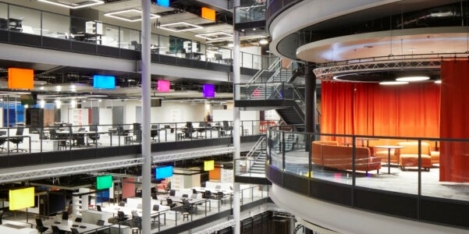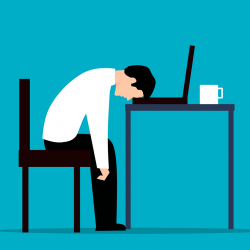To provide the best experiences, we use technologies like cookies to store and/or access device information. Consenting to these technologies will allow us to process data such as browsing behaviour or unique IDs on this site. Not consenting or withdrawing consent, may adversely affect certain features and functions.
The technical storage or access is strictly necessary for the legitimate purpose of enabling the use of a specific service explicitly requested by the subscriber or user, or for the sole purpose of carrying out the transmission of a communication over an electronic communications network.
The technical storage or access is necessary for the legitimate purpose of storing preferences that are not requested by the subscriber or user.
The technical storage or access that is used exclusively for statistical purposes.
The technical storage or access that is used exclusively for anonymous statistical purposes. Without a subpoena, voluntary compliance on the part of your Internet Service Provider, or additional records from a third party, information stored or retrieved for this purpose alone cannot usually be used to identify you.
The technical storage or access is required to create user profiles to send advertising, or to track the user on a website or across several websites for similar marketing purposes.
 Employees are more likely to resist beneficial organisational changes if they contradict historic firm values according to research from Imperial College Business School. The COVID-19 pandemic has forced organisations all over the globe to rethink how they do business, yet it may not be easy to make lasting change if new organisational practices grate against traditional, deeply-held values. (more…)
Employees are more likely to resist beneficial organisational changes if they contradict historic firm values according to research from Imperial College Business School. The COVID-19 pandemic has forced organisations all over the globe to rethink how they do business, yet it may not be easy to make lasting change if new organisational practices grate against traditional, deeply-held values. (more…)








 A new report from think tank Demos and Legal & General calls on the UK Government to back policy change that supports growth of hybrid working and local offices to drive forward its plans for regeneration and economic growth. The report,
A new report from think tank Demos and Legal & General calls on the UK Government to back policy change that supports growth of hybrid working and local offices to drive forward its plans for regeneration and economic growth. The report, 
 The number of technology job listings in the UK declined by 57 percent during the past year, with fewer than 55,000 open roles advertised, according to the latest UK Tech Talent Tracker from
The number of technology job listings in the UK declined by 57 percent during the past year, with fewer than 55,000 open roles advertised, according to the latest UK Tech Talent Tracker from 
 A report released by
A report released by 
 Around a half (51 percent) of employees believe job security and flexibility (40 percent) are more important than salary (32 percent) when considering whether to remain at their current employer, according to a new report by UK law firm,
Around a half (51 percent) of employees believe job security and flexibility (40 percent) are more important than salary (32 percent) when considering whether to remain at their current employer, according to a new report by UK law firm, 
 A
A 


 Temporary moves boost creativity according to new research from
Temporary moves boost creativity according to new research from 
 During the pandemic, 1 in 4 (25 percent) employees say they’ve had no wellbeing check-ins from their workplace. The research from
During the pandemic, 1 in 4 (25 percent) employees say they’ve had no wellbeing check-ins from their workplace. The research from 
 The cost of poor company culture is a staggering £20.2 billion per year, according to research from HR software provider
The cost of poor company culture is a staggering £20.2 billion per year, according to research from HR software provider 
 A new in-depth
A new in-depth 
 Human resources research and advisory firm
Human resources research and advisory firm 







